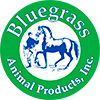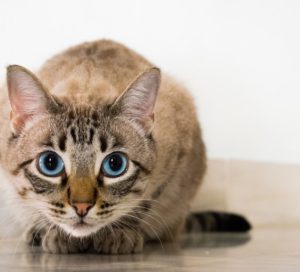Cats
Your Cat’s Microflora
The intestinal microflora of each animal has a large impact on not only their digestive health but also their overall health. Giving your cat FeliOtic probiotic drops for cats daily is an easy way for you to help support the microflora balance in your cat. The microflora is made up of millions of naturally occurring microorganisms. These microorganisms are species specific as well as dependent upon many factors in your cat’s life such as diet, environment, antibiotic use and age (1). FeliOtic helps to replenish the naturally occurring, species specific good bacteria. Keeping a consistent, mutually beneficial microbiome flora is important for reducing incidence if diarrhea, attachment of pathogens, and immunity. These organisms have a huge impact on the development of immunity (3).
Good gut health not only influences your cats GI directly by reducing incidence of upset stomach, boost immunity and has an influence on their airway. A healthy microbiota is important for airway health in cats due to the existence of the gut-lung axis. The gut-lung axis relates to how “the intestinal microbiota modulates the systemic immune response include the production of short-chain fatty acids (SCFA) and signaling through pattern recognition receptors (PRR) and segmented filamentous bacteria. Those factors influence the secretion of pro- and anti-inflammatory cytokines by immune cells and further modulate differentiation and recruitment of T cells to the lung” (6). Supplementing with oral probiotics has been shown to have an increase in richness and diversity of the airway microbiota (5).
Many commercial feeds now advertise that they have probiotics in them however the probiotic viability in feeds is severely decreased due to the encapsulation process and storage (4). FeliOtic probiotic for cats contains feline sourced lactobacillus reuterii bacteria in a guaranteed dosage of 0.5 billion live CFUs per 5 drops.
Resources:
- https://www.vettimes.co.uk/app/uploads/wp-post-to-pdf-enhanced-cache/1/probiotics-in-cats-and-dogs.pdf
- https://pubmed.ncbi.nlm.nih.gov/22853923/ – Minamoto, Yasushi et al. “Feline gastrointestinal microbiota.” Animal health research reviews 13,1 (2012): 64-77. doi:10.1017/S1466252312000060
- Hooper L V et al (2012). Interactions between the microbiota and the immune system, Science 336(6,086): 1,268-1,273. – Hooper, Lora V et al. “Interactions between the microbiota and the immune system.” Science (New York, N.Y.) 336,6086 (2012): 1268-73. doi:10.1126/science.1223490
- https://www.hindawi.com/journals/ijmicro/2020/1293481/ – Bruna M. Rodrigues, Paula M. Olivo, Milene P. Osmari, Ricardo S. Vasconcellos, Leonir B. Ribeiro, Ferenc I. Bankuti, Magali S. S. Pozza, “Microencapsulation of Probiotic Strains by Lyophilization Is Efficient in Maintaining the Viability of Microorganisms and Modulation of Fecal Microbiota in Cats”, International Journal of Microbiology, vol. 2020, Article ID 1293481, 10 pages, 2020. https://doi.org/10.1155/2020/1293481
- https://www.frontiersin.org/articles/10.3389/fmicb.2017.01287/full – Vientós-Plotts AI, Ericsson AC, Rindt H and Reinero CR (2017) Oral Probiotics Alter Healthy Feline Respiratory Microbiota. Microbiol. 8:1287. doi: 10.3389/fmicb.2017.01287
- Stricker S, Hain T, Chao C-M, Rudloff S. Respiratory and Intestinal Microbiota in Pediatric Lung Diseases—Current Evidence of the Gut–Lung Axis. International Journal of Molecular Sciences. 2022; 23(12):6791. https://doi.org/10.3390/ijms23126791

